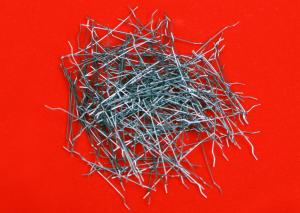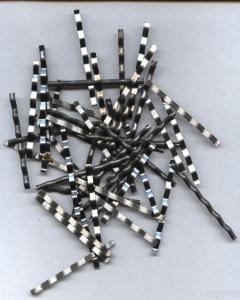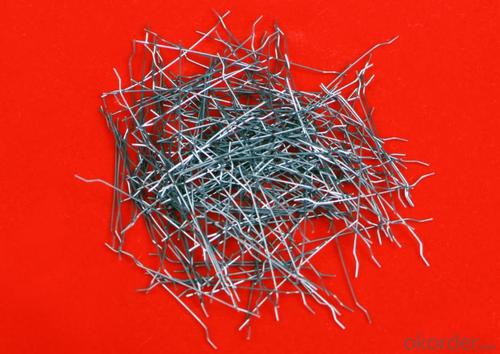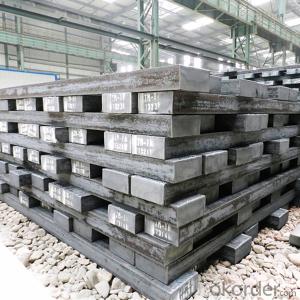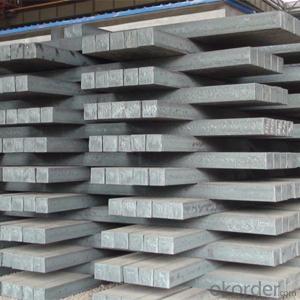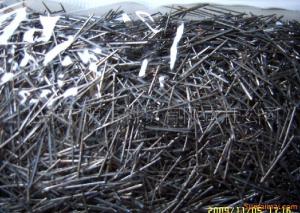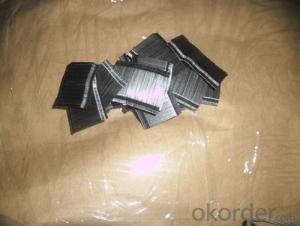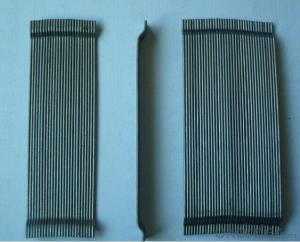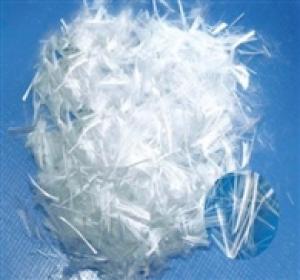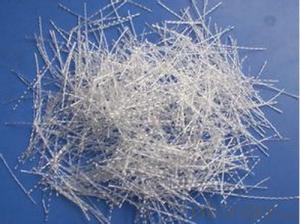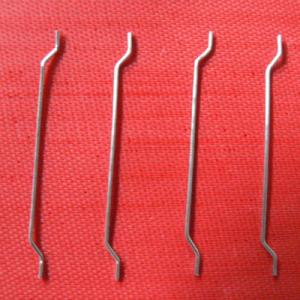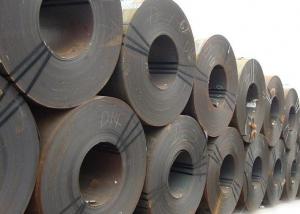Steel Fiber For Concrete
- Loading Port:
- Guangzhou Port
- Payment Terms:
- TT or L/C
- Min Order Qty:
- 5 Tons m.t.
- Supply Capability:
- 50000000 Ton Per Year m.t./month
OKorder Service Pledge
OKorder Financial Service
You Might Also Like
Introduction of Steel Fiber for Concrete:
The Steel Fiber for Concrete uses high-quality low-carbon steel wire, they are high-performance steel fiber, with the characteristics of the high tensile strength, good toughness, etc. The product is widely used for homestic construction,such as buildings ,roads, bridges,airport runny.tunnel ,culvert,inner lining of underground construction,port,pier,and ocean project,etc.
Data Sheet of Steel Fiber for Concrete:
DIA (mm) | Length (mm) | Tensile Strength (MP) |
1 | 60 | ≥1000 |
1 | 50 | ≥1000 |
0.9 | 60 | ≥1000 |
0.9 | 50 | ≥1000 |
0.75 | 60 | ≥1000 |
0.75 | 45 | ≥1000 |
0.75 | 35 | ≥1000 |
0.55 | 30 | ≥1000 |
0.5 | 30 | ≥1000 |
0.5 | 25 | ≥1000 |
0.4 | 25 | ≥1000 |
Economic benefits of steel fiber:
A. Replace of rebar mesh
B. Reduce concrete volume
C.Save construction time and cost
D.Reduce excavation volume
E.Available for jointless floor.
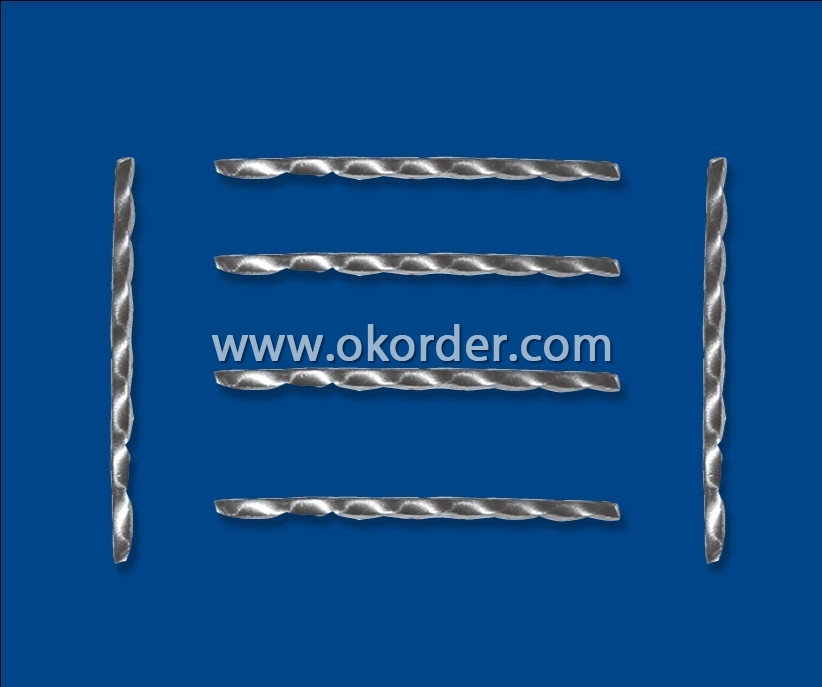
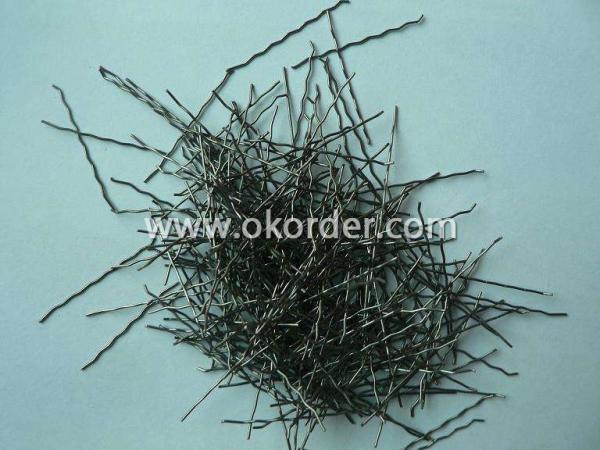
- Q: What are the different types of steel storage racks?
- There are several different types of steel storage racks, including pallet racks, cantilever racks, drive-in racks, push-back racks, and flow racks. Each type is designed for specific storage needs and offers unique benefits and features.
- Q: How does steel sheet metal bending and forming work?
- Steel sheet metal bending and forming involve applying force to a sheet of steel to shape it into a desired form, such as a bend, curve, or complex shape. This process is typically done using specialized machines called press brakes, which have a V-shaped die and a punch. The sheet metal is placed between the die and punch, and force is applied to the punch, causing the metal to deform and take the shape of the die. The amount of force, angle of the die, and other variables determine the final shape and accuracy of the bending process.
- Q: What are the different types of steel angles and their applications in the construction of bridges?
- There are primarily two types of steel angles used in the construction of bridges: equal angles and unequal angles. Equal angles, also known as L-shaped angles, have equal sides and are commonly used for vertical and horizontal bracing and support in bridge construction. They provide stability and strength, making them suitable for various load-bearing applications. On the other hand, unequal angles have different lengths on each side, allowing for greater versatility in bridge construction. They are often used for diagonal bracing, providing additional structural support and stability. Unequal angles are also commonly employed in bridge connections, where they help distribute loads and resist bending forces. Both equal and unequal steel angles play crucial roles in bridge construction, contributing to the overall strength, stability, and durability of the structure. By strategically incorporating these angles, bridges can withstand heavy loads, resist external forces, and maintain their integrity over time.
- Q: How is steel used in the manufacturing of HVAC systems?
- Steel is commonly used in the manufacturing of HVAC systems due to its strength, durability, and heat resistance properties. It is used to construct the framework, ductwork, and various components of HVAC systems to ensure structural integrity and longevity. Steel also helps in maintaining proper air distribution and can withstand high temperatures and pressure, making it an essential material in the manufacturing process.
- Q: How do steel products contribute to the automotive aftermarket industry?
- Steel products contribute significantly to the automotive aftermarket industry by being fundamental components in the production and repair of vehicles. From body panels and frames to engine parts and suspension components, steel is widely used due to its strength, durability, and affordability. Steel products also play a crucial role in ensuring safety by providing structural integrity to vehicles. Overall, steel's contribution to the automotive aftermarket industry is vital in maintaining and enhancing the quality, performance, and reliability of vehicles.
- Q: What are the different surface finishes available in steel products?
- Some of the different surface finishes available in steel products include mill finish, hot-rolled finish, cold-rolled finish, galvanized finish, and brushed finish.
- Q: What are the properties of stainless steel for medical equipment?
- Stainless steel used in medical equipment possesses several important properties. Firstly, it is highly resistant to corrosion, which is crucial in medical settings where cleanliness and sterility are paramount. Additionally, stainless steel is durable and can withstand frequent cleaning and sterilization processes without losing its structural integrity. It is also non-magnetic, making it safe for use in magnetic resonance imaging (MRI) machines. Furthermore, stainless steel is biocompatible, meaning it is not toxic or harmful to the human body, making it suitable for implants and surgical instruments. Overall, the properties of stainless steel make it an ideal material for medical equipment due to its corrosion resistance, durability, non-magnetic nature, and biocompatibility.
- Q: What are the potential health hazards associated with working with steel products?
- Some potential health hazards associated with working with steel products include exposure to hazardous substances such as metal fumes, dust, and noise. Inhalation of metal fumes and dust can cause respiratory issues and lung diseases, while prolonged exposure to high levels of noise can lead to hearing loss. Additionally, cuts, burns, and other physical injuries can occur while handling steel products. It is important to use proper safety equipment and follow safety protocols to minimize the risks associated with working with steel products.
- Q: What are the common types of steel products used in the pet training and behavior industry?
- Some common types of steel products used in the pet training and behavior industry include steel leashes and collars, steel crates and cages, steel training prong collars, and steel exercise pens.
- Q: How is steel used in the production of playground equipment?
- Steel is commonly used in the production of playground equipment due to its strength, durability, and ability to withstand outdoor elements. It is used to construct the frames, supports, and chains of various play structures such as swings, slides, and climbing frames. Steel's robust nature ensures the equipment can safely support the weight of children and withstand frequent use and harsh weather conditions, making it an ideal material for playground equipment.
1. Manufacturer Overview
| Location | Hunan, China |
| Year Established | 1989 |
| Annual Output Value | Above US$ 10 Million |
| Main Markets | North America; South America; Eastern Europe; Southeast Asia; Africa; Oceania; Mid East; Eastern Asia; Western Europe; Central America; |
| Company Certifications | ISO 9001:2000 |
2. Manufacturer Certificates
| a) Certification Name | |
| Range | |
| Reference | |
| Validity Period |
3. Manufacturer Capability
| a) Trade Capacity | |
| Nearest Port | Guangzhou Port |
| Export Percentage | 41% - 50% |
| No.of Employees in Trade Department | Above 10 People |
| Language Spoken: | English; Chinese; |
| b) Factory Information | |
| Factory Size: | Above 20,000 square meters |
| No. of Production Lines | Above 10 |
| Contract Manufacturing | Design Service Offered; Buyer Label Offered |
| Product Price Range | High; Average |
Send your message to us
Steel Fiber For Concrete
- Loading Port:
- Guangzhou Port
- Payment Terms:
- TT or L/C
- Min Order Qty:
- 5 Tons m.t.
- Supply Capability:
- 50000000 Ton Per Year m.t./month
OKorder Service Pledge
OKorder Financial Service
Similar products
Hot products
Hot Searches
Related keywords
